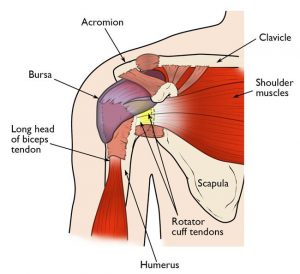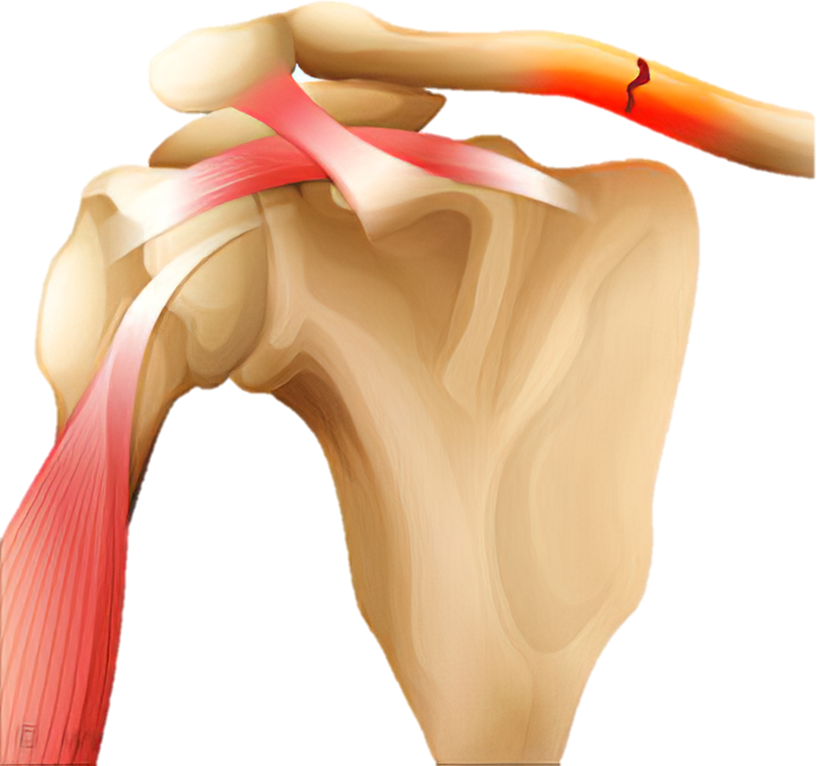A clavicle fracture is a fracture of the clavicle bone at the front of the shoulder. It is also known as a broken collarbone. It is usually caused from a fall onto the shoulder, or onto an outstretched arm
If you suspect a broken collar bone then seek medical attention immediately.
Symptoms
- Immediate severe pain along the collar bone at the front of the shoulder.
- Pain will be from falling onto an outstretched arm as in cycling, or horse riding.
- Or from direct trauma to the shoulder, for example, when in collision with another player in football or rugby.
- Immediate swelling.
- The location of the fracture will feel extremely tender.
- You may have obvious deformity where the bone has fractured.
- Your scapular (shoulder blade) may protrude outwards at the back.
.
Anatomy
The clavicle is the bone that runs along the front of the shoulder to the sternum (breastbone) at the front of the chest.
In approximately 15% of injuries, the clavicle bone breaks more towards the shoulder, at the acromioclavicular joint.
The bone usually fractures in its middle third. The outer part of the bone towards the shoulder often gets pushed down, whilst the inner part displaced upwards.
These fractures take longer to heal and may be prone to not healing properly at all

Treatment
Seek medical attention
An x-ray will confirm the fracture. Your arm will then be immobilized with either a sling or collar and cuff. You need to be monitored by your therapist to check that your collar bone is healing properly and not shortening. Otherwise, you may heal with a deformity in your shoulder.
Pain relief
is the main aim in the early stages and a doctor will usually prescribe pain-relieving medication. After a period of complete immobilization (1-2 weeks), the arm should then be gently moved to prevent shoulder stiffness.
Rehabilitation
Will involve regaining full range of motion using mobility exercises and stretches, as well as ensuring strength is not affected. The injury is likely to take 4 to 6 weeks to heal.
Surgery
is not usually required for fractures of this type. Open fractures where the bones pierce the skin or non-union of the bones after 6 weeks are more likely to require surgical intervention
Contact Me
Let's chat!
Need more information? Send me an email or drop me a line. I don’t bite!
- Charlotte@rehabontheroad.co.uk
- 07971448719

